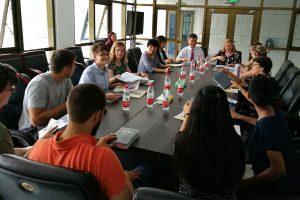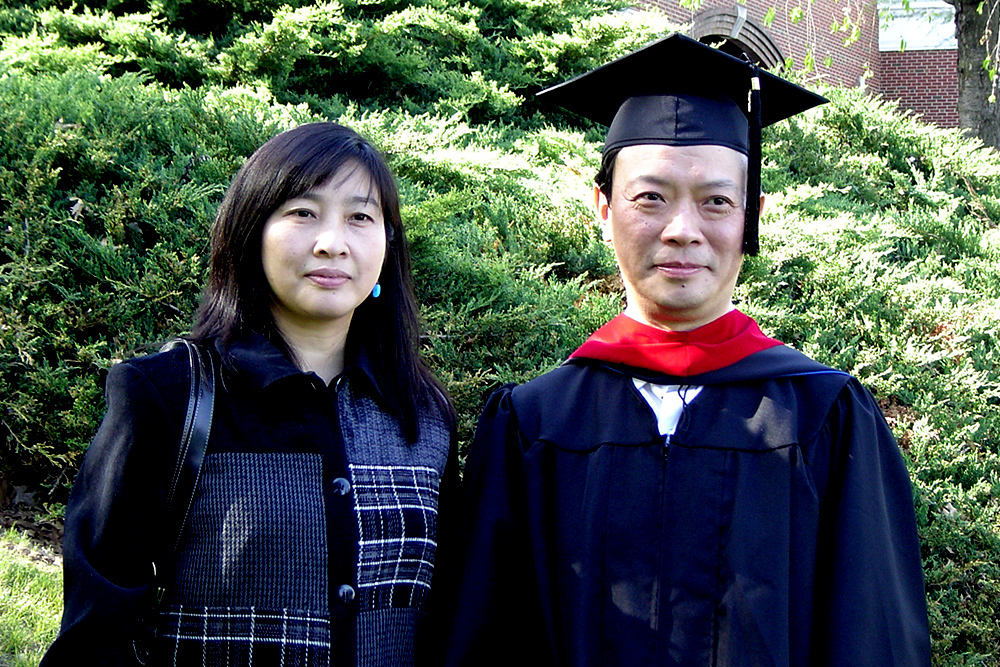Wu Wei, a 2006 graduate of Eastern Mennonite Seminary, was named president of the China Christian Council (CCC) at the 10th Annual China Christian Conference in November 2018. Wu will give leadership to an umbrella organization based in Shanghai that oversees more than 60,000 churches and nearly 25 million believers.

The CCC provides theological training through a network of seminaries and Bible schools and provides Bibles and materials for churches. The organization also oversees pastoral development and has formulated an ecclesiological order for local churches. As the voice of the registered Chinese churches to church bodies overseas and a member of the World Council of Churches, the CCC connects to provincial and municipal church councils across China and hosts numerous delegations from churches all over the world.
A native of Beijing, Wu grew up in a Christian home and graduated from the national seminary in Nanjing. As senior pastor of the largest church in Beijing, he met teachers serving with Mennonite Partners in China who encouraged him to pursue his dream of studying overseas.
Supported by Mennonite Partners in China and the seminary, Wu studied in Harrisonburg, Virginia for four years. He and his wife, Wu Jinzhen, then spent five years pastoring a small Chinese-language congregation in Louisville, Kentucky.
Back in China in 2011, Wu asked to return to the pastorate, but church leaders and the Beijing government asked him to serve in an administrative capacity, overseeing churches and pastors in the city. During these years in Beijing, Wu often talked about the challenge of working with government policies and officials while promoting the mission of the church.
During his time at EMS, Wu attended a number of church events, including several Mennonite Church USA Assemblies. He did an internship at the Parkview Mennonite Church in Harrisonburg. In a church presentation, Wu spoke about how “the political environment and social context may often change, but God’s grace and Jesus’ commission for the church will never change.”
He also stressed that Christians serve as a small minority in China and the importance of believers “needing to strengthen Christian witness to society by uniting all Christians so that others can know Christ.”
While Wu supports the post-denominational status of the Chinese church, he often refers to the ways in which his seminary professors and his reading of Anabaptist writers helped shape his theology. “The social ethic of Jesus was not to withdraw from society or the world, but to assume a life style that could be kept with integrity,” he said.
When asked what Christians outside of China can do to assist the church, Wu always answers, “You need to pray for us.”
